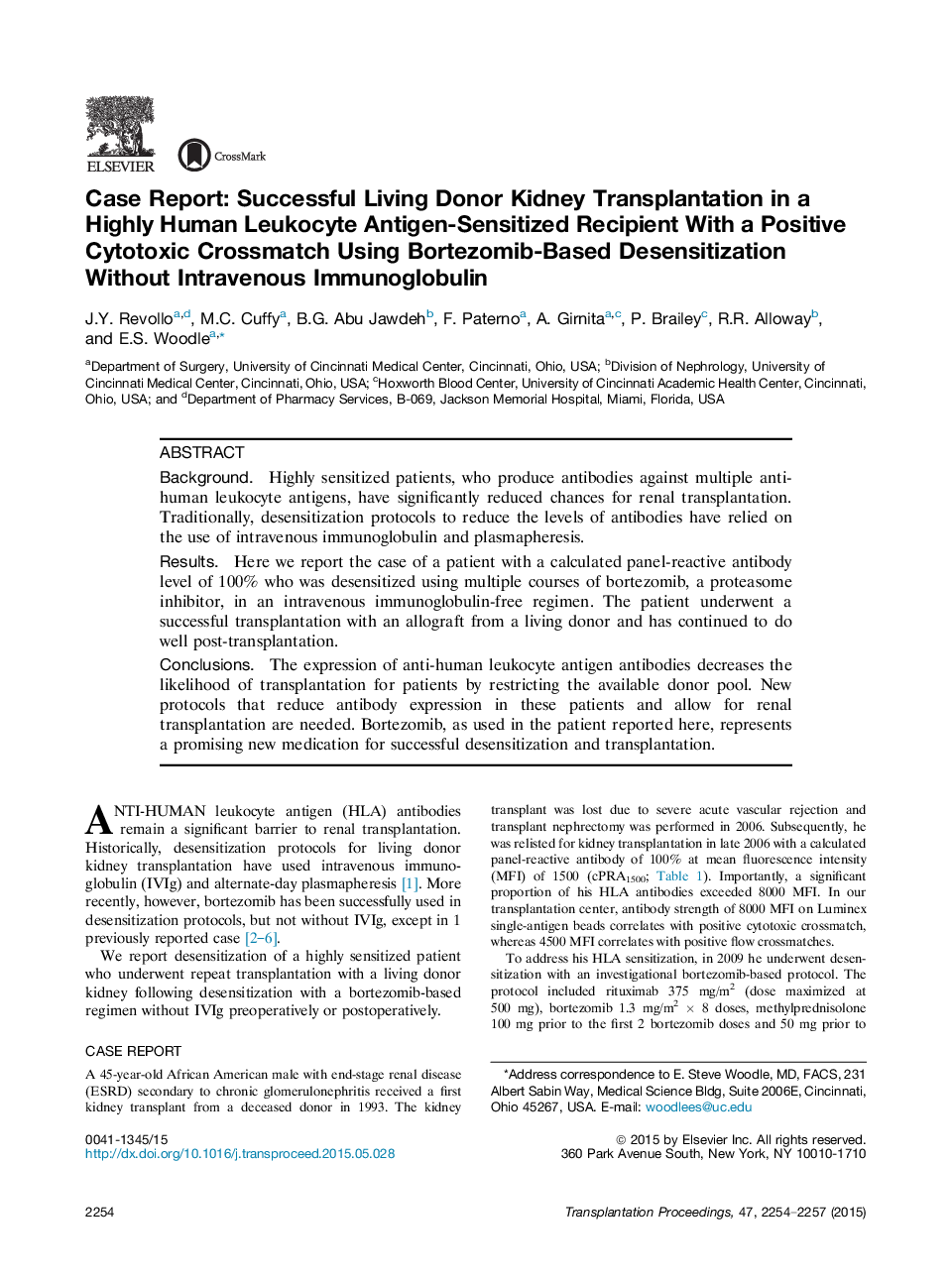| Article ID | Journal | Published Year | Pages | File Type |
|---|---|---|---|---|
| 6246834 | Transplantation Proceedings | 2015 | 4 Pages |
â¢Desensitization of highly sensitized patients can increase renal transplantation rate.â¢A bortezomib-based protocol, without IVIg, reduced DSA levels.â¢Patient successfully received a kidney transplant from a living donor.â¢Bortezomib may be used to reduce high levels of anti-HLA antibody pretransplantation.
BackgroundHighly sensitized patients, who produce antibodies against multiple anti-human leukocyte antigens, have significantly reduced chances for renal transplantation. Traditionally, desensitization protocols to reduce the levels of antibodies have relied on the use of intravenous immunoglobulin and plasmapheresis.ResultsHere we report the case of a patient with a calculated panel-reactive antibody level of 100% who was desensitized using multiple courses of bortezomib, a proteasome inhibitor, in an intravenous immunoglobulin-free regimen. The patient underwent a successful transplantation with an allograft from a living donor and has continued to do well post-transplantation.ConclusionsThe expression of anti-human leukocyte antigen antibodies decreases the likelihood of transplantation for patients by restricting the available donor pool. New protocols that reduce antibody expression in these patients and allow for renal transplantation are needed. Bortezomib, as used in the patient reported here, represents a promising new medication for successful desensitization and transplantation.
